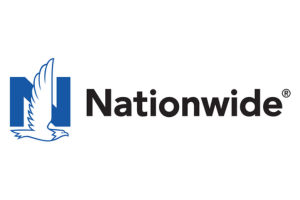Life Lessons: Teaching Kids About Money
Empower your children's financial future with life lessons on teaching kids about money. Discover practical tips and tools for fostering financial literacy. Gain insights on instilling healthy money habits, saving strategies, and responsible spending from an early age. Equip your kids with essential financial skills for a brighter financial future.
Read more Secured with SHA-256 Encryption





Compare Quotes From Top Companies and Save
Life insurance policies starting at less than $1/day




Table of Contents
Table of Contents


Insurance Claims Support & Sr. Adjuster
Kalyn grew up in an insurance family with a grandfather, aunt, and uncle leading successful careers as insurance agents. She soon found she has similar interests and followed in their footsteps. After spending about ten years working in the insurance industry as both an appraiser dispatcher and a senior property claims adjuster, she decided to combine her years of insurance experience with another...
Kalyn Johnson


Licensed Insurance Agent
Jeffrey Manola is an experienced life insurance agent who founded TopQuoteLifeInsurance.com and NoMedicalExamQuotes.com. His mission when creating these sites was to provide online consumers searching for life insurance with the most affordable term life insurance, permanent life insurance, no medical exam life insurance, and burial insurance. Not only does he strive to provide consumers with t...
Jeffrey Manola
Updated October 2024
Welcome to our comprehensive guide on life lessons and teaching kids about money.

We will explore key topics such as financial literacy, budgeting, saving, and smart spending habits that every parent should impart to their children. We understand the importance of equipping kids with the necessary skills to navigate the complex world of personal finance.
By instilling these fundamental principles early on, we can empower them to make sound financial decisions and set them on the path to a secure and prosperous future. To ensure your family’s financial well-being, enter your zip code below and compare rates from the best insurance providers today.
Preschool and Below
According to research, parents can start teaching their kids about finance once they reach an age when they can grasp basic concepts about money. This age usually falls around four or five for most children.
To begin, you can explain to them what money is and what it is for. You can explain how money is earned and what jobs are. You can also begin the discussion about saving with these topics.
These concepts could be introduced by giving them a weekly allowance. Better yet, you can set up a payment system for chores they do, such as 50 cents for every time they make their bed after waking up or clean up their toys after playing. Give each child a clear jar to keep and view their allowance and chore payments.
Since children of this age tend to have short attention spans for serious discussions, you can also use online games or apps to teach them simple financial concepts. You will find an abundance of these games for free on the Internet. They usually teach kids about financial concepts by making a game out of identifying, saving, and counting money.
Resources:
- Washington State Department of Financial Institutions: Online games and apps that teach kids about money
- The Mint: Saving gives you power
- Indiana Department of Financial Institutions: Teaching your child basic economic principles
Free Life Insurance Comparison
Compare Quotes From Top Companies and Save
Secured with SHA-256 Encryption
Elementary School
As they enter elementary school, kids will be spending significantly more time in school than at home, so the continuation of their financial lessons are ideally done there.
Teachers and educators are finding it more effective to incorporate discussions about money and personal finance into subjects like English or Mathematics.
Teachers struggling to develop lesson plans to accommodate these topics can find plenty of materials and plans on the internet. You can find lesson plans on establishing a classroom economic system to bring real-life scenarios into the classroom.
In this system, kids are taught the importance of a work ethic and earning money while also introducing them to more complex concepts such as credit cards, saving, and how banks work.
In case your child’s school does not employ methods like the one we mentioned, you can continue their learning at home by retaining the money jar method. You can also sign them up for free online lessons on various sites.
Resources:
- George Lucas Educational Foundation Edutopia: Elementary financial literacy: lesson ideas and resources
- National Education Association: Resources for teaching financial literacy
- Hands on Banking: Financial information for kids
Middle School
During middle school, you can move on from money jars to ‘virtual banks.’ These banks are designed for teaching kids about personal money management and more. As the ‘banker,’ you can set up your family’s own virtual online bank which operates more or less the same way as a real-world bank.
This is a great way to utilize your kid’s propensity for smart devices while teaching them the value of saving. The banker/parent can distribute allowances through this system and give each kid an individual log-in so that they could see how much they are taking out or saving from their accounts.
Meanwhile, school teachers are advised to assign real-world and real money homework. They could ask their students to look into their family’s food budget and ask their parents to allow the students to manage a week’s worth of that budget to give them an idea of how to spend responsibly.
Resources:
- MyKidsBank.org: About MyKidsBank artificial online banks
- University of New Mexico: Classroom mini-economy
- Consumer Financial Protection Bureau: Money smart for grades 6-8
High School
Ideally, your kids should have a good understanding of money and saving at this age. Paying for college and their inevitable entry into independent living are the most important things to focus on when talking about finances with them. These upcoming changes are both exciting and overwhelming, so it is important to give your kids the support they need.
Start by pointing them in the direction of useful resources they could use to educate themselves on the possible financial decisions they will soon be making after high school.
Encourage your kids to read a variety of financial advice blogs targeted towards older teenagers. From blogs like these, they will learn how to understand a credit score and how to make smart financial decisions. You can also choose to enroll them in self-paced online financial courses where they can get guided lessons for free.
At school, teachers can incorporate lessons on finance with the various subjects. Teachers from Donors Choose share the techniques they use to include financial lessons in subjects like English and not just in Economics or Mathematics class.
For example, one 12th grade English teacher uses a role-playing activity called Living Paycheck to Paycheck in order to deepen her students’ understanding of financial concepts and the texts they read in the class.
Resources:
- High School Financial Planning Program: Financial education tools for graduating seniors
- The Donors Choose Blog: Financial Literacy: The subject students wish they were taught
- Department of the Treasury: Financial education resources
Free Life Insurance Comparison
Compare Quotes From Top Companies and Save
Secured with SHA-256 Encryption
College Students
If you have a kid that will soon be heading to college, then it is a great time to talk to them about finance. Sooner or later they will be faced with challenging decisions they need to make about things like applying for financial assistance and loans or how to work out a budget that allows them to live within their means. Ensuring that your kids are as prepared as they can be before going to college is important since you will not be around as much to guide the way.
Encourage your son or daughter to do their research about possible scholarships and grants they could apply for and how to check if they are eligible for any financial aid.
Resources:
- Khan Academy: Paying for College
- American Institutes of CPAs’ 360 Degrees of Financial Literacy: College Students
- Education USA: Find financial aid

Frequently Asked Questions
When should parents start teaching their children about finance and financial responsibility?
Parents can start teaching their children about finance and financial responsibility once their children reach an age when they can grasp basic concepts about money, which is usually around four or five years old.
What are some basic concepts that parents can teach preschool-aged children about finance?
Parents can introduce basic financial concepts to preschool-aged children, such as what money is, what it is for, how money is earned, and what jobs are. They can also introduce the concept of saving by giving them a weekly allowance or setting up a payment system for chores.
What online games or apps can parents use to teach preschool-aged children about financial concepts?
Parents can use free online games or apps to teach their preschool-aged children about financial concepts. These games usually make a game out of identifying, saving, and counting money.
How can teachers incorporate discussions about money and personal finance into subjects like English or Mathematics?
Teachers can find plenty of materials and plans on the internet to incorporate discussions about money and personal finance into subjects like English or Mathematics. They can also use lesson plans on establishing a classroom economic system to bring real-life scenarios into the classroom.
What are virtual banks, and how can they be used to teach children about finance?
Virtual banks are designed for teaching kids about saving and investing. These banks allow kids to deposit money and learn about interest rates and how to manage their money. Parents can use virtual banks to teach their middle school-aged children about saving and investing.
Get a FREE Quote in Minutes
Insurance rates change constantly — we help you stay ahead by making it easy to compare top options and save.






